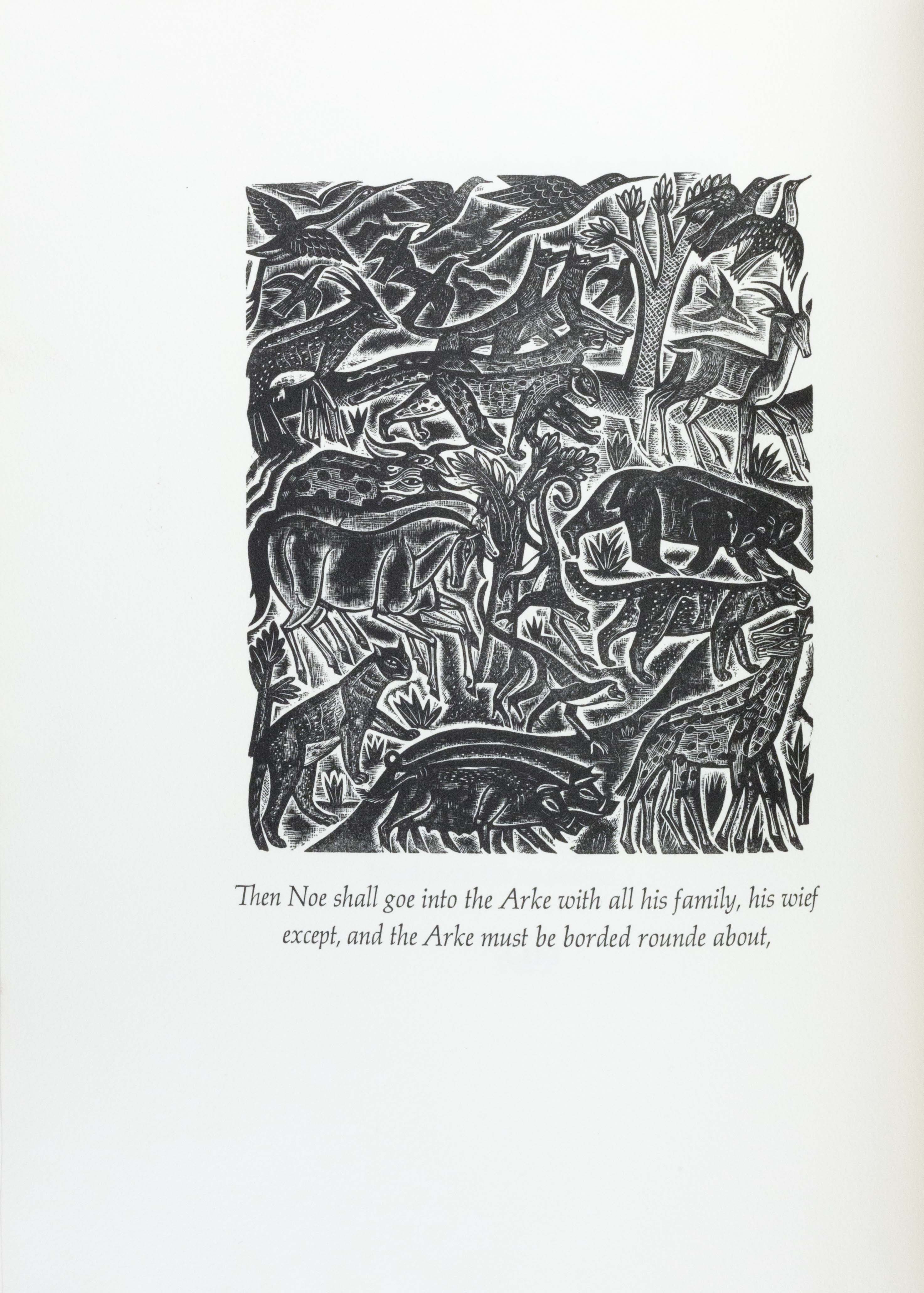
London: Clover Hill, 1977
[S.L.] III [Rampant Lions Press – 1977] fol.
This story about the Old Testament character of Noah and the Flood (Gen. 6-9) is one of the mediaeval mystery plays: dramas enacting biblical events from the creation of the world to the ascension of Christ (and sometimes beyond) which were popular in England and other European countries between the thirteenth and sixteenth centuries. The plays were performed in procession outdoors over three or five days around Corpus Christi and Whitsun by craft guilds. They were widely attended, such that London clerks performed in the presence of Richard II. Noah was an especially popular play, which has come down to us in six Middle English versions and a Cornish one; that shown is one of 24 plays in the Chester cycle. It represents an oral method of communication: at a time when the vernacular Bible was regarded as heretical, listening to a paraphrase in a sermon or a play was the closest that most people came to hearing the scriptures in their own language. The Reformation distaste for idols and religious pageantry led to the demise of the mystery plays; but increasing literacy and the prevalence of the Bible and prayer book in the English language eliminated a need for them.